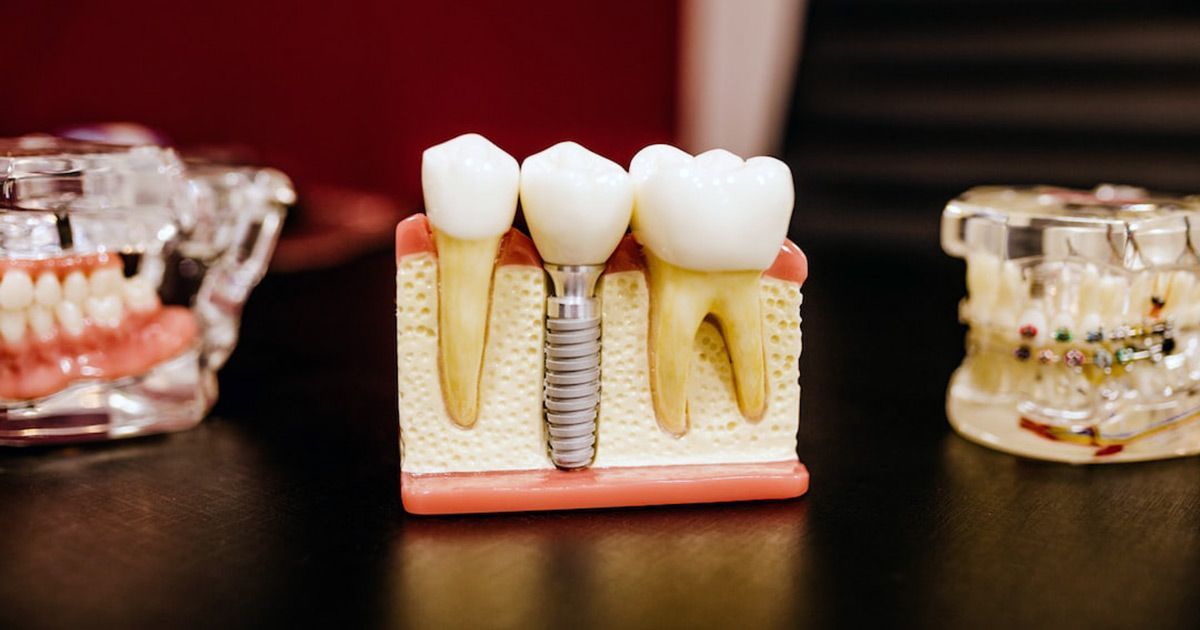Dental Implants vs. Crowns: The Main Differences
There are several things to understand when comparing dental implants vs. crowns. Here's how a dentist in Brewster, NY can help.
If you're looking for an easy stress-buster, all you have to do is smile. One study found that smiling for 20 seconds can reduce stress and improve your health and happiness.
This is easier said than done if you're dealing with tooth damage or missing teeth. People who feel self-conscious about their teeth are less likely to show them off, with some people even covering their mouths when they laugh or smiling with their mouths closed!
Cosmetic dentistry can help. Whether you choose dental implants vs. crowns, the right treatment can enhance your pearly whites and help you feel more confident about your smile.
However, how do you know which option is right for you?
Let's take a look at what to expect from dental implants and crowns, the benefits and differences of each, and how your dentist can help you weigh your options.
What to Expect From Dental Implants vs. Crowns
Before we dive into your options, let's cover the basics:
Dental Crowns
A dental crown is a cap shaped to look like your natural teeth. It covers and protects a weak, decayed, or chipped tooth. Patients who get a crown keep part of their natural tooth.
The procedure for a dental crown takes a few hours, often over two visits. The dentist will remove some of your enamel to make room for the artificial crown, and they will also take an impression of your teeth. Once a dental lab makes a custom crown, your dentist will bond the cap to your tooth.
Dental crowns come in many different materials, though ceramic and porcelain are the most common. With proper care, crowns can last around 5-15 years.
Dental Implants
With dental implants, your dentist will replace one or more damaged or missing teeth with a full prosthetic replacement. Patients do not keep any part of their tooth.
To do this, the dentist will place a metal post into your jawbone where you need the tooth replacement. Atop this post will be a custom crown.
Patients who get implants must have multiple surgical procedures. These procedures must be several months apart to allow the jawbone to heal.
The result is a natural-looking tooth that can
last for decades. You may need to come in for a crown replacement after enough daily wear, but you will not need to replace the metal post.
Benefits of Both Implants and Crowns
Getting dental implants or crowns for teeth can offer some great advantages.
First, both of these procedures treat broken or decayed teeth. They also hinder further decay on the tooth in question and prevent decay from spreading to other teeth.
Implants and crowns also improve a patient's oral function. With either of these prosthetics, you'll find it easier to bite and chew.
Patients who worry about their appearance will enjoy either of these options, as they mimic the color and texture of your natural teeth. If you're struggling with cosmetic tooth problems, implants and crowns can both enhance your smile.
No matter which option you choose, you'll enjoy your smile for years. You may eventually need to replace a crown on its own or a crown atop a dental implant, but most patients don't need to do this for over a decade.
Differences Between Implants and Crowns
As you weigh your options, keep in mind that each of these procedures offers unique benefits. In addition to the main use of each, with implants replacing a full tooth and crowns covering the top of one, here are a few differences to be aware of:
Expense
Crowns are inexpensive when compared to implants. Because the procedure is simpler and requires fewer materials, patients with little to no insurance coverage will pay less out of pocket. These prosthetics do wear down faster than implants, though, which means they need replacing after enough use.
Dental implants are more expensive up front. You are paying not only for the procedure and the post but also the cost of a crown to cover the post.
However, implants last longer than crowns, meaning they can sometimes become more cost-effective in the long term.
Eligibility
Most patients are eligible for dental crowns. Because the dentist won't need to remove the natural tooth, the procedure for crowns is not very invasive.
Not all patients are good candidates for dental implants. If a patient doesn't have sufficient jawbone structure, it will be impossible for the dentist to place the metal post. Bone grafting may be an option for some, but this process can be time-consuming and invasive.
Time
The procedure for getting crowns is short, often requiring two appointments with no downtime for healing. For dental implants, you may spend months healing between appointments, and the entire process can last half a year or longer.
Dental Implants vs. Crowns: Which Should You Choose?
A crown may be right if you meet the following criteria:
- You have surface-level damage to a tooth
- A lower procedure price is important to you
- You'd prefer to keep your natural tooth
- You dislike the idea of having multiple surgeries
Dental implants may be ideal if you meet the following criteria:
- One or more of your teeth are missing
- You don't have a condition that causes bone deterioration
- You prefer a permanent solution to your tooth problems
- You don't want to worry about replacements
- You don't mind the longer procedure timeline
However, every patient's oral health is unique, and many factors come into play when deciding how to address damaged or missing teeth. If you're not sure which choice would be best, ask your dentist about your options.
Talk to Your Dentist Today
When you're choosing between dental implants vs. crowns, you don't have to do it alone! Though the tips above can help you understand both treatments, an experienced dentist will guide you to the right cosmetic procedure for your smile.
That's where Putnam Bright Smile Dentistry comes in. If you're seeking a skilled and compassionate dentist in Brewster, NY, we'd love to help. Contact us about your cosmetic dentistry options or request an appointment now.
Dr. Rohit Z Patel
D.D.S
After graduating at the top of his class, Dr. Patel continued his postgraduate studies in endodontics at Columbia University College of Dental Medicine in New York. He was appointed to assistant clinical professor of dentistry at Columbia University and later moved on to teach at the Montefiore Medical Center’s Department of Dentistry. Westchester Magazine recognized Dr. Patel as a “Top Dentist for 2012.”
Dr. Arpita Patel
D.D.S
Dr. Arpita S. Patel graduated with a DDS degree from the university College of Dentistry in 2015. Dr. Patel is experienced with an array of restorative dentistry procedures, including dental implants and many other treatments that can improve dental health, function, and appearance.
Dr. Yung Kim
D.D.S
Dr. Yung Kim is a double board certified Periodontist and board certified Prosthodontist, educated to treat many extremely complex disorders involving gum disease, tooth decay, and oral pathology. His focus is on full-mouth, complex, surgical, and reconstructive dentistry. He has extensive knowledge of implant dentistry and advanced surgical procedures, specializing in teeth in a day and All-on-Four implants. He is also Invisalign certified and experienced with CAD/CAM restorations and dentures.
Dr.Santvana Vyas
D.D.S
Dr Vyas attended NYU College of Dentistry and earned DDS in 2016 at the top of her class. She was inducted into Omicron Kappa Upsilon (OKU), the national dental honor society and earned Outstanding Achievement Award in study of Prosthodontics.
Dr Vyas is an active member of American College of Prosthodontics (ACP) and American Dental Association (ADA). She is appointed as a Clinical Assistant Professor at NYU College of Dentistry. She is married and is blessed with two sons.

















